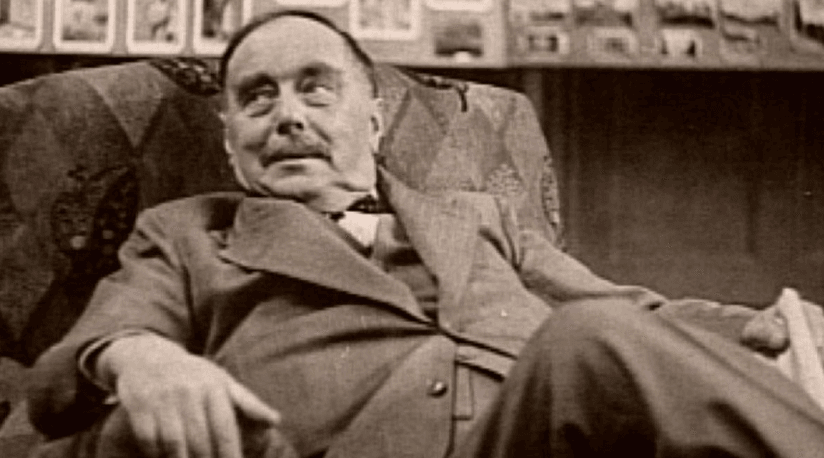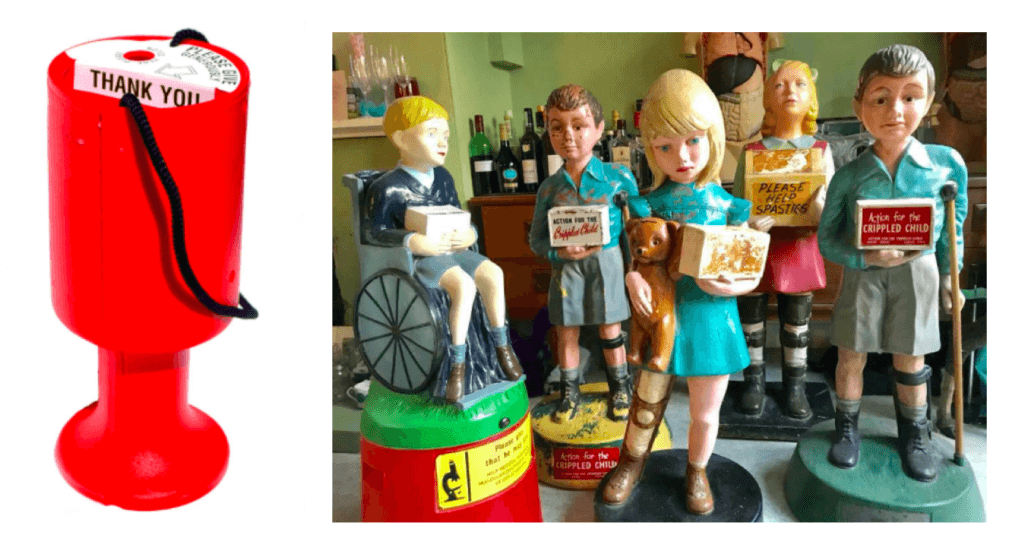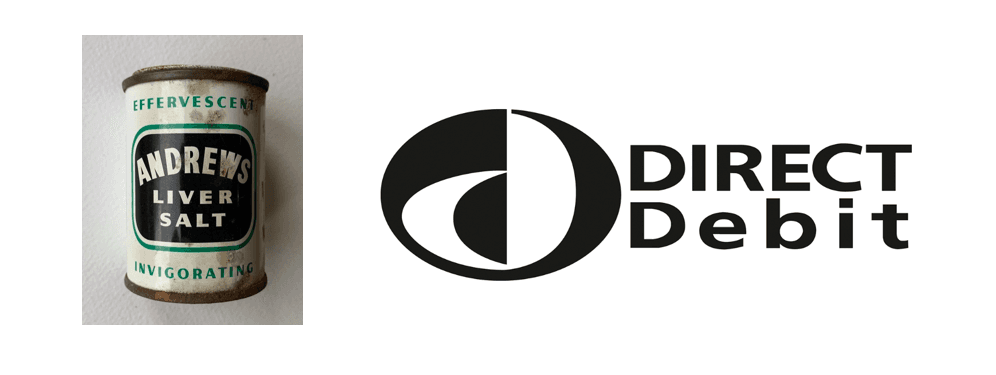The A to Z of writing fundraising appeals: T to Z
We bring you the final iteration of copywriter extraordinaire Steve Lynch’s seminal A to Z of writing fundraising appeals, from T to Z.
- Written by
- Steve Lynch
- Added
- August 21, 2019
The A to Z of writing fundraising appeals
by Steve Lynch
Part four: T to Z.
This article first appeared as part of this piece on the Queer Ideas blog. Our thanks to Steve and QI’s Mark Phillips for letting us reproduce it here.
T is for Tone of voice
Does your charity, or the one you’re writing for, have an official Tone of Voice? If it does, I bet I know what it is. It’s almost certainly both compassionate and passionate and odds on its about action and getting things done. You probably also want to convey that you do things together, as a team.
Was I right? Probably, and that’s because all official charity Tones of Voice are, essentially, exactly the bloody same. Of course your TOV is compassionate, you’re a charity. It’s staggering to think how much time and money has been wasted developing documents that describe a ‘unique’ TOV when every single charity in the world could just say, ‘we care a lot about the thing we exist for, and we’re quite nice’.
So my advice for anybody writing or reviewing copy is simple – ignore what your charity’s TOV is supposed to be. Write in the TOV that your donors want to hear. Be conversational, friendly, respectful and interesting.
Sometimes you do need to do a bit more, but that will be determined by your letter’s signatory or your cause rather than a TOV statement dreamed up by a corporate brander.
So when I’m writing for military charities from, for instance, a major general, I channel Trevor Howard in a WWII film. If I’m writing about children, I imagine they’re mine. If I’m writing about a great injustice, I get angry.
After you’ve written it, read your letter out loud. Does it sound like the person whose signature is at the bottom wrote it? Then you have the TOV.
U is for Urgency
Urgency in appeals is always good. We know that it gets results and that, even with the best intentions, if people don’t respond straight after reading an appeal they’re likely to forget, or put it to the back of their mind. But creating urgency can be difficult, as this conversation shows:
Client Services Colleague: We got the feedback from the client through and they want the pack to have much more urgency.
Me: OK. Do we have a deadline when they need the money by? Perhaps they need to allocate funding or something?
Client Services Colleague: No
Me: OK, can we say there will be some sort of consequence if people don’t give now? For good or bad?
Client Services Colleague: No.
Me: It will be tough then, but maybe there’s some sort of anniversary or event we could hang it on, you know, ‘return your gift by May 12 in time for the 20th anniversary of the first time we did this’, something like that?
Client Services Colleague: Sorry. No.
Me: What am I supposed to do then?
Client Services Colleague: They said you should use more urgent words.
I’ve had conversations like this many times and it doesn’t get any easier to make the case for giving more urgent, when there is no compelling reason I can give donors for it being so. But in the absence of a target, deadline, or consequence of not giving, there are some things you can do.
Highlight a growing need. If more people than previously need your charity’s help, you can impart a pressing need by telling donors.
Say ‘today’ a lot. Remind people to give now. You could even tell them to put the Freepost envelope in their bag or pocket, so its there next time they pass a postbox.
The sooner we get it. Tell people that the sooner you get their gift, the sooner it will help the people or cause they care about.
URGENT: Use the actual word URGENT. Maybe put it in a big red stamp. Put it on the reply form and BRE as well. Don’t bother looking for synonyms that say URGENT better, I’ve checked and there aren’t any.
P.S. Younger readers may not be aware that donors will probably associate red stamps on envelopes with one of these.

I think the Gas and Electricity Boards were hoping to shame people into paying on time, but it didn’t work. Where I grew up, nobody even looked at a bill until they got the ‘Reddy’.
V is for Variables
Using variable copy, where we individually laser details of a donor’s relationship with a charity into a letter, can be a powerful tool in the hands of a fundraising copywriter. It allows us to show supporters that we know them and talk to them as an individual, rather than just the proverbial cash point.
We all do it in most of our letters to donors, but most of the time we do it badly. Variable copy is all too often perfunctory, generic and dull. It’s easy to fall into the habit of writing variable copy because we feel we have to, rather than thinking about what it can achieve.
Some of the time this happens because the data isn’t very good and its difficult to say much at all, so we end up writing catch-all variables that don’t really achieve very much. Like:
<Thank you so much for your <regular gifts> which do so much to help people affected by (whatever it is).>
But even if we can’t tell much about a donor from the data, we could still give it more oomph.
<Every month, because of your regular gift, somebody affected by (whatever it is) will have somewhere to turn to; they won’t have to face (situation) on their own. Thank you so much for your wonderful commitment to being there for people like (case study name).
And when we do know more about donors from the data, we should always express not just gratitude, but impact. If we know how much they gave, and how much the thing we asked for costs, we should be able to write variables like this:
<Your gift meant <x> young people could spend a night safe and warm with us, away from the dangers of the street. Because of you those <X> young people, who may have experienced terrible trauma and abuse, will have had a hot meal, a shower and a good night’s sleep – maybe their first one in weeks. Your generosity will mean those <X> young people will no longer feel so alone, they know they have <our charity> and they have you. Thank you <Mrs Sample.>
Obviously that takes up more space than a perfunctory or generic thank you. But it’s worth it.
W is for Words of wisdom

‘I write as straight as I can, just as I walk as straight as I can, because that is the best way to get there.’
HG Wells
It’s a good idea to use fewer words, but that doesn’t mean you could get the same level of responses by sending donors a compliments slip rather than a four-page letter. It means, as Wells suggests, that you should make your argument, ask and points economically, using as few words to get there as you can.
X is for £XX
Thanks to the technological miracle that is modern printing, when I’m writing copy for a charity’s existing donors, I don’t have to type out how much money I’m asking for. In the word doc I put:
<£XX>
and the amount is lasered in, depending on the donor’s giving history. Its important to remember, however, that one person’s <£X> is another person’s <£XXX,XXX>.
You should write the copy differently, depending on what’s going to replace the XXs. For instance, for lower value donors, who give under £10, you might write:
Your gift of £XX will give another family like Alex’s seeds to plant this year, which means healthy food for the children and even a little left over to sell at market.
If the £XX is going to be replaced by £200, you will need something a bit different.
Your gift of <£XX> will mean 10 families like Alex’s have seeds to plant this year. Their children will have food to eat and they’ll have a surplus to sell so they can pay school fees. Your generosity could help lift an entire community out of poverty, for good.
Y is for You
No prizes for guessing what Y was going to be. This is, after all, about fundraising.
But instead of being the millionth person telling you that YOU is the most important word in fundraising copy, I though I’d talk about YOU the reader of this blog, somebody who potentially might want to work as a copywriter, or who might occasionally need to write donor communications. Here’s a list of things YOU might need to do write to donors successfully (apologies if some of these are covered in previous posts – this A to Z thing gets hard towards the end).
YOU will need to give a f**K about the cause you’re writing about. Without it, copywriting is hard work and nobody wants to do that.
YOU will need a good grounding in English. Sentence structure, punctuation and grammar aren’t things you can pick up overnight, however hard you work at them. If you don’t love words and language, you’re probably not going to be good at creating them.
YOU will need to do your research – into both your cause and your audience.
YOU will have to write several drafts before you get it close to something that’s good enough.
YOU will need to learn from people who’ve been doing this for a while. Master the techniques but then, crucially, challenge them to see if you can do something better.
YOU will need a thick skin. To write good copy, you have to put a lot of yourself into it, so when people don’t like it, it can hurt.
Y is (also) for Youth
To return to a point I made in an earlier blog, it’s key to remember that you are not your audience. You are almost certainly much, much younger than them. To illustrate why this knowledge should influence every word you write, I’ve put together this chart showing how some common charity words or phrases might mean something completely different to somebody in their 70s.
Collection Box

Regular

Sustainable
Z is for Zinger
If you read F for Feedback (Bad) you will remember that I’m not great when people criticise my copy. And when they do, it really isn’t going to help if they come out with a Zinger like this:
Please check the use of apostrophe’s throughout the copy document.
The context is revealing. This person didn’t feed back like other clients. They put theirs in an excel spreadsheet that had seven columns in it so various people from across the organisation could have their say. There were 186 lines. So that’s 186 comments, x7. On a pack that consisted of just an envelope, letter and don form.
Over complicated sign-off procedures like this are appeal killers. Nothing good can survive a process involving so many diverse and often opposing opinions.
You can’t write a fundraising letter by committee. It just doesn’t work. The more people you involve in sign-off, the more you dilute your message, the more your communication becomes about box-ticking, rather than addressing the concerns of the real human beings you’re supposed to be talking to.
The great David Ogilvy had a thing or two to say about how highly he valued criticism from non-qualified outsiders (see no. 12).
But still it goes on…and still we, as a sector, end up putting out communications that aren’t anywhere near as good as they could be simply to appease the foibles, or massage the egos, of people within our own organisations.
So if you work for a charity please, for the sake of my sanity at least, try to streamline your sign-off process. Only good stuff can happen as a result.
Z is (also) for Zzzzzs
My first copywriting job was in financial services and I loathed it. I couldn’t sleep at night because I felt guilty for persuading people to get credit cards, invest in dodgy ISAs or take out loans they couldn’t afford. When people asked me what I did for a living, I often lied. I told myself I had to pay the rent, but I was ashamed.
Perhaps the best thing about writing for charities is that I can go to sleep at night knowing that, in however small a way, I’ve spent my working day helping to change the world for the better.
Writing for charities can be frustrating (see about 10 of my previous posts) and of course it comes with the same day-to-day niggles and nonsense as any other job. But when all’s told it’s not a bad way to make a living. At the very least, to borrow from the Hippocratic Oath, it’s very likely that you will ‘Do No Harm’. Sometimes it’s fantastic. Without wishing to sound smug, when I see a new press ad I’ve written, or get a mail pack through the door that I’m proud of, it feels great.
So if anything I wrote in my previous posts might have put you off pursuing a career in copywriting or fundraising, I apologise. I was just having a moan. You should go for it. Good luck.

















